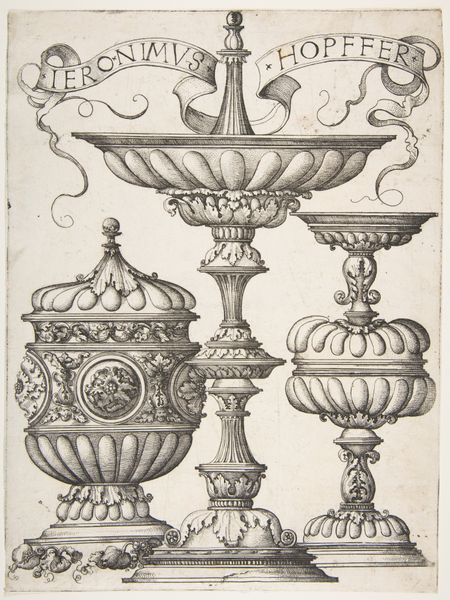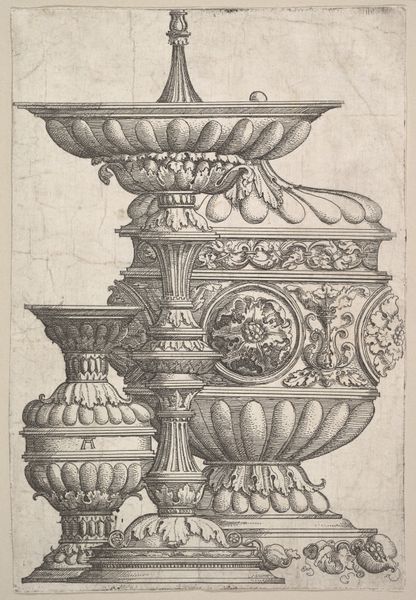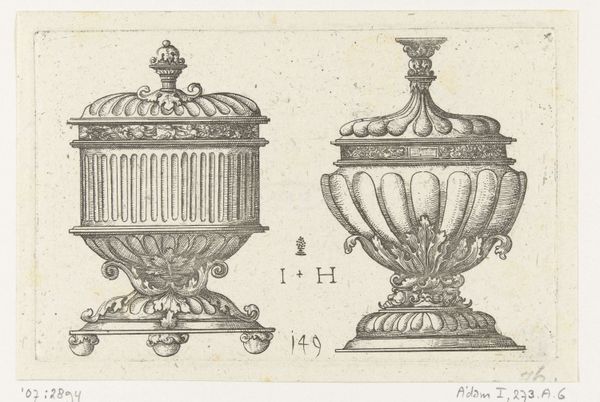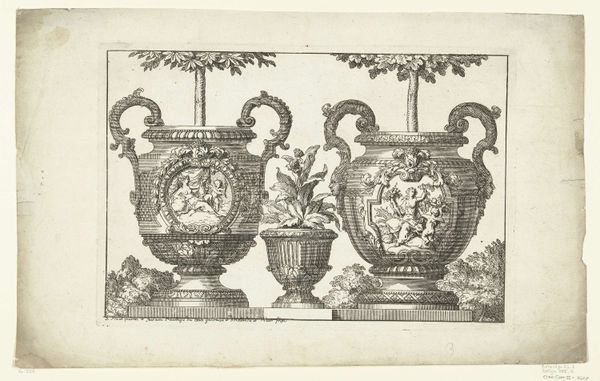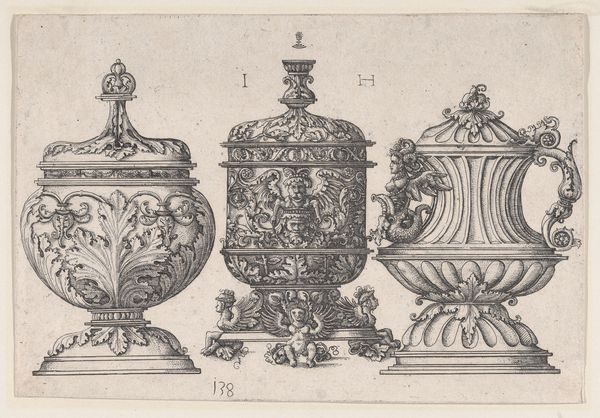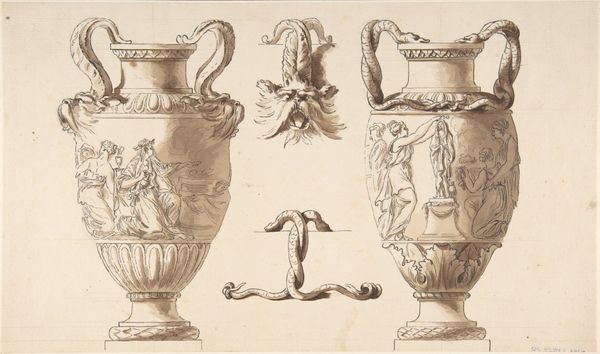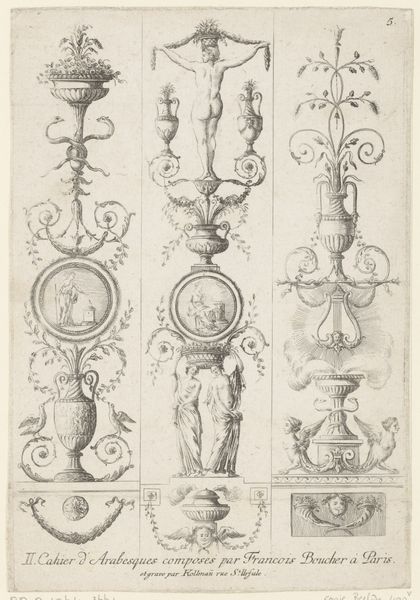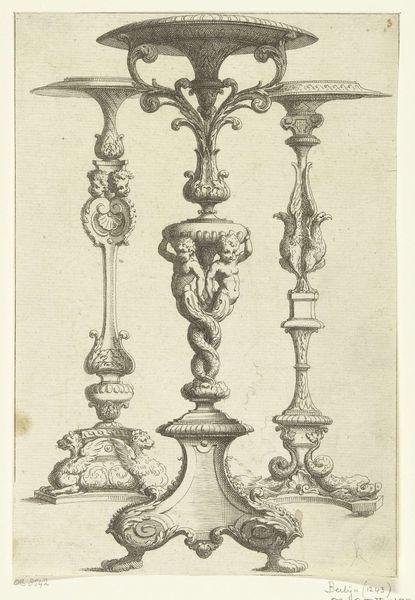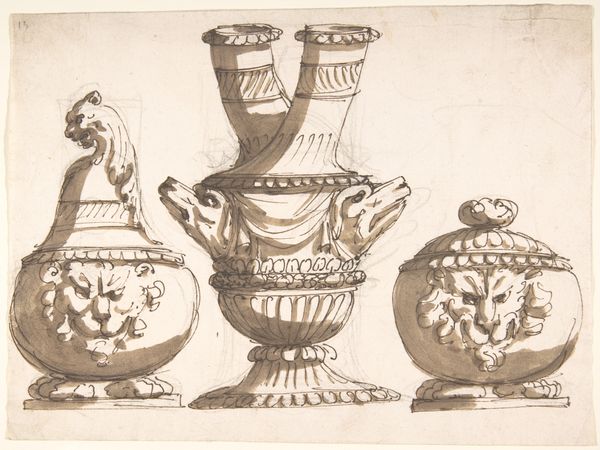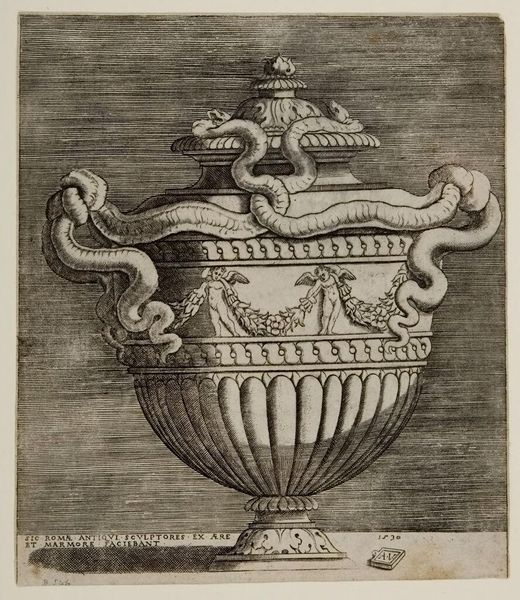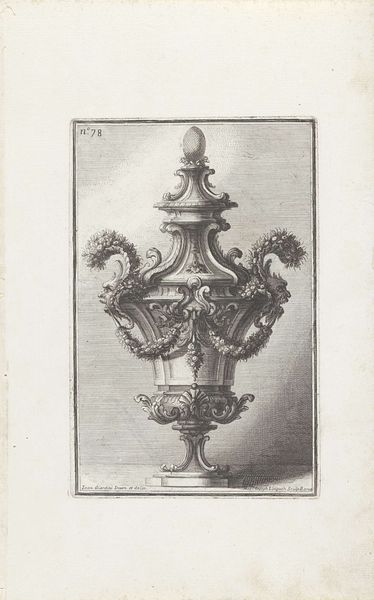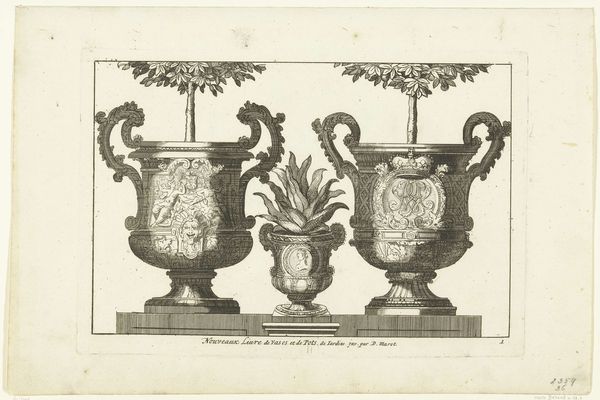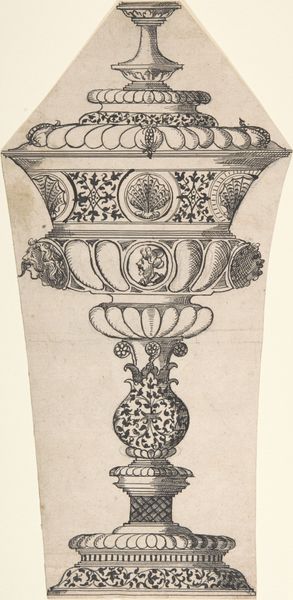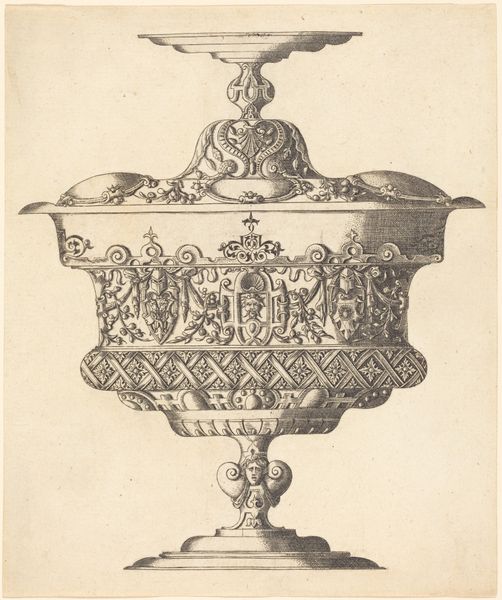
#
aged paper
#
toned paper
#
light pencil work
#
quirky sketch
#
pencil sketch
#
old engraving style
#
personal sketchbook
#
pen-ink sketch
#
sketchbook drawing
#
sketchbook art
Dimensions: height 143 mm, width 214 mm
Copyright: Rijks Museum: Open Domain
Editor: This intriguing sketch, “Drie bokalen,” created between 1528 and 1550 by Hieronymus Hopfer, depicts three chalices, all quite ornate. The details feel excessive and fantastical. How do you interpret this work within its historical context? Curator: It's tempting to see these chalices merely as ornamental designs, but given the era and Hopfer’s engagement with socio-political issues, it’s crucial to consider what these vessels might signify. Luxury goods, particularly those depicted with such meticulous detail, often functioned as signifiers of wealth and power, reflecting and reinforcing existing social hierarchies. Editor: So, you're saying these drawings are about more than just aesthetics? Curator: Precisely. The excessive detail could be read as a critique of the extravagance of the ruling classes, perhaps questioning the ethics of conspicuous consumption in a time of social inequality. How does the stark, almost clinical rendering influence your perspective? Editor: I see your point. The linework is very precise and restrained. If it were rendered with a softer touch, I think it might convey a completely different message, but it lends a kind of… weight to the image, maybe? Curator: That "weight" you're sensing may stem from the cultural weight of these objects themselves. Chalices also hold symbolic value as ceremonial objects, especially for Catholics and Christians. Perhaps this engraving represents more than status, extending to issues of religious representation and authority. Editor: It’s interesting to consider the social implications and not just the artistic skill involved. I will rethink the relationship between form and context in this image. Curator: Absolutely, thinking about these items, not just as sketches of chalices, but as representations of social power opens us up to a richer understanding of art’s role in shaping our perceptions of the world around us, past and present.
Comments
No comments
Be the first to comment and join the conversation on the ultimate creative platform.
